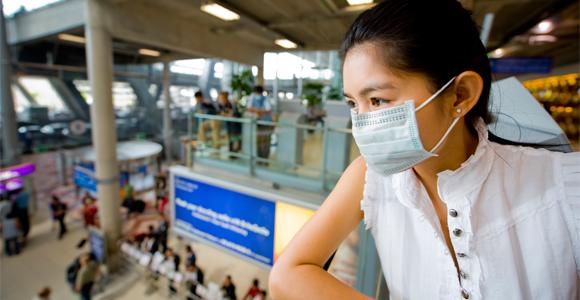It’s Confirmed — Airport Screening for Infectious Disease is Largely Ineffective

A new study questions the value and effectiveness of in-airport screening of flyers returning from epidemic hot zones.
When the first few cases of Ebola were brought from hot zones in Africa to the shores of North America, officials responded with the hasty implementation of mandatory screenings for all passengers returning to the U.S. from infected areas. The finding from a recent study, however, are calling the effectiveness of those measures in to question.
An article published this month in eLife, a peer-reviewed scientific journal, details the results of a study examining the effectiveness of airport-based screening for symptoms of an infectious disease. The study found that “even in the most optimistic scenario arrival screening will miss the majority of cases.”
The study conducted by scientists at UCLA, London School of Tropical Hygiene and Medicine, Fogarty International Center and the NIH, developed a mathematical model to interpret the variables that are involved in trying to identify infected passengers at airports. Some of the listed factors that can influence the airport screening process include the history and epidemiology of the pathogen, the characteristics of the source epidemic and basic human behavior.
Sporting a wordy title — “Effectiveness of traveller screening for emerging pathogens is shaped by epidemiology and natural history of infection” — the study found that using a passenger’s fever as an indicator of possible infection is far more effective when screening for pathogens with a short incubation period than it is for other pathogens, such as Ebola, which have a longer incubation period. The study concluded that in either case, the process of screening arriving passengers for symptoms of infection is likely to miss far more infected passengers than it identifies.
[Photo: iStock]






















